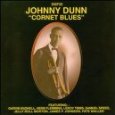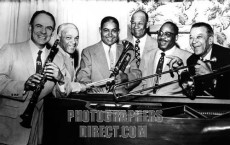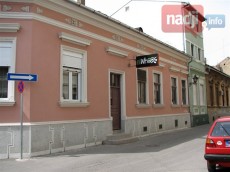
Daily Dose Of Jazz…
Bobby Jaspar was born February 20, 1926 in Liege, Belgium and at a very young age learned to play piano and clarinet. He later took up the tenor saxophone and flute that became his working instruments. Bobby took his first steps in the jazz world with the Bop Shots band but in 1950, Jaspar moved to Paris, played and recorded with the best musicians of the era and met his future wife, Blossom Dearie.
In 1956, Jaspar was persuaded to try his luck in the U.S. where his reputation in jazz circles had preceded him. He played and recorded with J. J. Johnson, Kenny Burrell, Miles Davis, John Coltrane, Toshiko Akiyoshi, Donald Byrd and many others.
In 1961/1962, Jaspar returned to Europe for a year for a series of concerts and a number of recordings. With his colleague, Belgian guitarist Rene Thomas, they formed a successful quintet and in some sessions, this was expanded to a powerful sextet with American trumpeter Chet Baker.
Bobby Jaspar, tenor saxophonist and flautist of the hard bop and cool jazz genres, died from a heart attack in New York City on February 28, 1963 at age 37.

Daily Dose Of Jazz…
Johnny Dunn was born on February 19, 1897 in Memphis, Tennessee and learned to play trumpet as a youth. He attended Fisk University in Nashville and had a solo act in Memphis before he was discovered by W.C. Handy and traveling to New York with him in 1917. After a three-year association featured playing cornet, Johnny joined Mamie Smith’s Jazz Hounds, recording with her band before leaving a year later to lead his Original Jazz Hounds.
During the 1920s he ventured to Europe with the Will Vodery band, recorded with Noble Sissle in France, played and recorded with Willie “The Lion’ Smith and memorable sessions with Jelly Roll Morton in New York, had a hit song “Sergeant Dunn’s Bugle Call Blues”.
By the 30s Dunn was working steadily in Europe and often residing there for periods of time in the Netherlands. He was among the best of the musicians playing in the immediate pre-jazz years and he influenced many of his contemporaries. Overshadowed though he was by the arrival of Louis Armstrong, Dunn was still an able and gifted player, showing subtle power and using complex patterns that never descended into mere showmanship.
His stylistic roots became outmoded during the 30s but his decision to remain in Europe and his early death on August 20, 1937, in Paris, meant that his reputation never suffered and is recognized as having been a highly accomplished trumpeter.
More Posts: trumpet

Daily Dose Of Jazz…
Harold de Vance Land was born on February 18, 1928 in Houston, Texas but was raised in San Diego, California. He started playing tenor saxophone at 16 and made his first recording as leader of the Harold Land All-Stars in 1949 for Savoy Records. By 1954 he had joined the Clifford Brown/Max Roach Quintet but due to family problems he moved to Los Angeles in 1955. There he led his own groups, played with Curtis Counce, and co-led groups with Bobby Hutcherson, Blue Mitchell and Red Mitchell.
Harold developed his hard bop playing with the Max Roach/Clifford Brown band into a personal, modern style. His tone was strong and emotional, yet displayed a certain fragility that made him easy to recognize. From the 1970s onwards his style showed the influence of John Coltrane.
In the early 1980s through to the early 1990s he worked regularly with the Timeless All Stars, a group consisting of Cedar Walton, Buster Williams, Billy Higgins, Curtis Fuller, and Bobby Hutcherson and sponsored by the Timeless jazz record label. Land also toured with his own band during this time, often including his son on piano and usually featuring Bobby Hutcherson and Billy Higgins as well. During these years he played regularly at Hop Singh’s in Marina Del Ray in the L.A area and the Keystone Korner in San Francisco.
As an educator he was a professor at the University of California, Los Angeles joining the Jazz Studies Program in 1996 teaching instrumental jazz combo. Tenor saxophonist Harold Land became a major contributor to hard bop and post bop jazz history, passing away from a stroke on July 27, 2001 at age 73.
More Posts: saxophone

Daily Dose Of Jazz…
Wallace Bishop was born February 17, 1906 in Chicago, Illinois and started on drums as a teenager, studying under Jimmy Bertrand. His first professional gig was with Art Sims and his Creole Roof Orchestra in Milwaukee in 1926. Around this time he also played with Jelly Roll Morton, Bernie Young, Hughie Swift, Richard M. Jones and Tommy Dorsey.
Often addressed as “Bish”, from 1928 to 1930 he played with Erskine Tate followed with the Earl Hines Orchestra from 1931-1937. By the 1940s he was playing with Jimmie Noone, Coleman Hawkins, Don Redman, Phil Moore, Foots Thomas, John Kirby and Sy Oliver among others.
While touring Europe with Buck Clayton in 1949, Wallace elected to remain there, and found work both with noted European jazz musicians and with touring or expatriate Americans, including Bill Coleman, Don Byas, Ben Webster, Kid Ory, Milt Buckner, Buddy Tate and T-Bone Walker. Bishop recorded only two pieces as a bandleader in 1950, with a trio, but he continued to record regularly into the 1970s.
Wallace Bishop, a subtle and supportive jazz drummer who was one of the finest drummers of the swing era, passed away on May 2, 1986 in Hilversum, Holland.

The Jazz Voyager
Jazz Club Wheels: Natoseviceva 4, Novi Sad, Serbia / Telephone: 381 21 522 557 / Contact: Family Dujin. Founded in 1998, Jazz Club Wheels is situated in the center of Novi Sad, in Natoseviceva St. 4.
Since it opened the club hosted over 500 noncommercial music events. The main goal of the line up schedule is to promote and expand urban, jazz inspired culture. The program meets the needs of the people who stop by regularly. Even twelve years ago the club was recognized as the only club in Vojvodina with regular jazz line up or theme nights. On the menu are tapas different taste and cheeses.
The Jazz Club Wheels was called after the Aleksandar Dujin jazz album from 1993 “Wheelz Around the World”, symbolically representing time and music travel going on in the club. From the start Jazz Club Wheels was the place where the gigs were organized not because of the money and engagement, but because of the pleasure, experimenting and promoting the music, in which, all the musicians in Novi Sad took part in.

